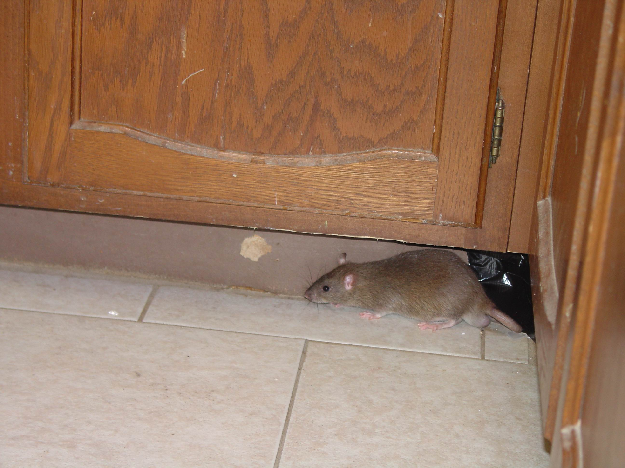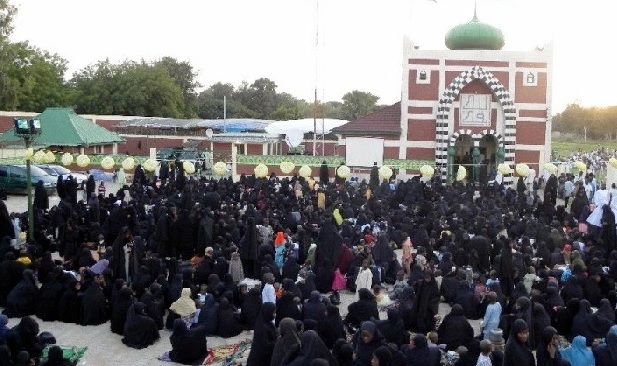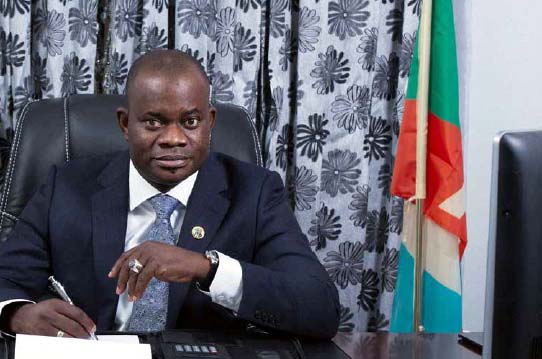The Lagos state government has placed under surveillance Ahmmadiyyah Hospital, Ojokoro, a Lagos suburb, where the patient with the first Lassa fever virus case was first admitted.
Jide Idris, commissioner for health, disclosed this in a statement on Saturday, saying 15 in-patients and 25 health workers in the facility were being monitored
The statement confirmed the deadly disease purportedly contacted by a 25-year- old, male, undergraduate student of the Ahmadu Bello University,(ABU) Zaria in Kaduna state.
Idris said that the Lassa fever case was the first occurrence in the state claiming that the government was doing its best to curtail its spread.
Advertisement
“In the wake of reported cases of Lassa fever in some states of Nigeria, the Lagos state government has confirmed the occurrence of the first case of Lassa fever in the State,” the statement read.
“The patient; a 25 year old, male, undergraduate of Ahmadu Bello University, Zaria, Kaduna state was reported to have fallen ill after he arrived Lagos.
“The patient was taken to Ahmmadiyyah Hospital, Ojokoro on January 9, 2016, with complaint of fever, sore throats and difficulty in swallowing.
Advertisement
“He was subsequently placed on admission for six days and was thereafter referred by the private hospital to the Lagos University Teaching Hospital (LUTH) on January 14, 2016.
“Ahmmadiyyah Hospital is now under surveillance and there will be no service delivery in the facility until further notice.”
Idris further explained that on January 15, LUTH confirmed that the patient had contacted Lassa fever, adding that the hospital was managing the case and the patient’s condition stable.
“In view of this new development, the Lagos state government has called on residents of the state to be calm,” the statement read.
Advertisement
“This we are saying in assurance that both the state and federal governments are doing everything possible to control the spread of the Lassa virus.
“This we are doing in line with international standards, the contacts of the patient are being tracked for follow-up; drugs and other materials have also been prepositioned at our designated facilities.”
Idris said isolation centres had been prepared to manage suspected and confirmed cases and urged citizens to be alert and inform government of any suspected case.
“The Mainland Hospital and all other General Hospitals have been placed on the alert where the anti-viral drugs for the management of cases are available,” the statement read.
Advertisement
“Ambulances have been dedicated to respond to referral and transportation of cases.
“Also airing of jingles on Lassa fever on electronic media and the distribution of factsheets on Lassa fever by the Medical Directors of LASUTH and 26 General Hospitals in Lagos State.
Advertisement
“Distributions are also made to Medical Officers of Health in all the 57 LGAs/LCDAs, all other agencies of the Ministry and AGPMPN for circulation to all health workers in their facilities.”
Idris also said there would be a reactivation of isolation wards in LASUTH and 26 General Hospitals in Lagos state for isolation of any suspected case.
Advertisement
On how to avoid contacting the disease, Idris said the public should stay away from rats, avoid eating it and report any persistent fever to the nearest public health facility.
“Members of the public should avoid ingestion of foods and drinks contaminated by the saliva, urine and faeces of infected rats, catching and preparing infected rats as food,” he said.
Advertisement
“Inhaling tiny particles in the air contaminated with infected rat urine or droppings.
“Direct contact with a sick person’s blood or body fluids, through mucous membranes, like eyes, nose or mouth.
“Those at highest risk include health workers, families and friends of an infected person in the course of feeding, holding and caring for them.
“Though Lassa fever and Ebola Virus Disease belong to the same Viral Haemorrhagic Fever group, Lassa Fever is milder and can be treated and cured if detected early.”
Idris however urged people to watch out for the signs and symptoms of Lassa fever which typically could occur within 1-3 weeks after the patient comes into contact with the virus.
“Early symptoms of the disease include; fever, headache, chills, diarrhea, nausea, vomiting, sore throat, backache, and joint pains,” he explained.
“Late symptoms include bleeding from the eyes, ears and nose, bleeding from the mouth and rectum, eye swelling, swelling of the genitals and rashes all over the body that often contain blood.
“It could progress to coma, shock and death. Public are also advised to suspect Lassa fever in persons with the above symptoms.
“They should also provide history of contact with an infected person or health worker who had treated either suspected or confirmed cases.”
Idris said the residents should keep and observe a high level of personal and environmental hygiene, and advised the health workers to wear appropriate PPEs when attending to suspected/confirmed cases.
He also said the following telephone lines: 08037170614, 08022234273, 08022241768 08033065303, 08033086660, 08055281442 and 08023169485, were open for necessary information.
Add a comment






